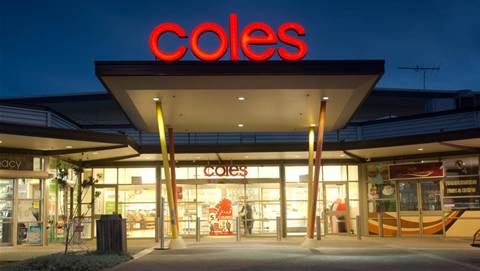Accenture has pointed to one principal takeaway for Australian business as its 2024 macrotrend outlook showed growth is set to be subdued this year.

In its special edition [pdf] January 2024 outlook and top 10 macro trends found for Australian “growth is likely to remain subdued as cost-of-living pressures and high interest rates continue to weigh on domestic demand”.
In the report, it stated that the “impact of positive wealth effects from recent house prices increases on consumer spending” and “the drag on Australian exports from China’s economic slowdown” are “what to watch for”.
Emma Neil Strategy and Consulting lead at Accenture told Digital Nation, “If we had to point to one overarching takeaway, the trends signal to Australian businesses that their ability to adapt is undoubtedly their biggest source of competitive advantage.”
“In previous decades, growth could be almost guaranteed by following tried and true formulas,
“However, those days are gone and disruption and innovation are the new status quo,” Neil said.
Neil added, “Growth is harder to come by when the macroeconomic climate is underpinned by uncertainty, but the businesses best at agilely adapting will continue to come out on top”
According to Neil, technology “will be key to every company’s ability to reinvent itself as these forces continue to drive change.”
Neil said three trends are pushing the changes, diverging consumer spending capacity, generative AI for productivity gains and resilient supply chains and a thriving clean energy industry is in the best interest of all Australian companies.
“While inflation and interest rates seem to have stabilised in Australia (at least momentarily) the cost of meeting higher mortgage repayments will continue to limit Australian household spending in 2024.
“However, while consumer demand is softening, it is not an even trend across consumer segments.
“Instead, we are seeing an increasing divergence in spending habits; affluent Australian households still appear to have a substantial cash stockpile that supports spending, while lower-income households have already depleted their excess savings and are feeling the impact as the cost of living rises,” Neil said.
Neil explained that in this type of environment, a “one size fits all model” no longer fits anyone but rather works with clients to use “data-driven analytics to adjust their marketing, pricing and channel strategies to better suit the diverging spending power of different customer segments.”
Neil added the current “challenging macroeconomic environment is fuelling intense interest in generative AI, largely centred around its promise of greater efficiency and productivity for an organization and its underlying functions.”
“A number of large Australian corporates, particularly in the financial services and telco segments, are leading the way with successful generative AI pilots already in play.
“However, other companies who have not invested to the same degree in their digital core and data architecture, are struggling to keep up.
“The good news is that the promise of generative AI is pushing those companies who were lagging in digitisation to up their game, and they will reap the benefits of doing so,” Neil said.
For the last trend, Neil said, “For the nation, creating a competitive renewable energy and critical mineral export industry should be an urgent priority.”
“Our research indicates that Australia could achieve AUD $314 billion per year by 2040 from a thriving clean energy export industry, as well as over 400,000 jobs.
“However, this is far from guaranteed, given the level of global competition in this space. But the stakes are high when you consider that many of the world’s stocks of critical minerals are located in some of the world’s least politically stable locations.”
Likewise, increasing the resiliency of our supply chains across the public and private sectors is also an imperative for the nation.
“The disruption to global supply chains in recent years should have been a shot across our bow, but we have been slow to respond.”
Neil added that “continued pressure on our supply chains should serve to encourage all Australian companies to reconsider their models for the sake of improving the nation’s resiliency, as well as their own.”


_(22).jpg&h=140&w=231&c=1&s=0)

_(28).jpg&h=140&w=231&c=1&s=0)
.png&h=140&w=231&c=1&s=0)



_(26).jpg&w=100&c=1&s=0)

 iTnews Executive Retreat - Security Leaders Edition
iTnews Executive Retreat - Security Leaders Edition












_(1).jpg&h=140&w=231&c=1&s=0)



